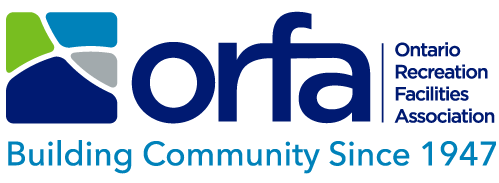- ORFA Home
- The Recreation Facility Profession
- Meet Our Members
- Luke Gonzalez, John Nike Leisuresport, UK
Luke Gonzalez, CIT
Assistant Ice Rink Manager, John Nike Leisuresport, UK
Share some of your most memorable career-related experiences The one experience that will stick in my mind for a quite a while and will be difficult to trump is completing the four courses required for the CIT in just over three weeks. I wanted to take all the courses in one go and thankfully the people at the ORFA, especially Remo, managed to make that a reality for me. It was very intensive but logistically it was easier travelling from place to place in Ontario than it would have been going back and forth from England to Canada. What would you describe as some of the most significant workplace and/or industry challenges you have faced over the past five years? A lot of rinks in the UK are owned and operated by private companies instead of the municipality, public skating generates most of the income and ice related sports sit in a niche market. One thing I’ve seen over the past five years is that public skating seems to be getting less popular at facilities but is becoming more popular for the temporary pop-up rinks over the Christmas period. I think this lack of footfall has affected the amount of funds available for reinvestment to better improve facilities. Rinks also operate all year round so there’s no down time in the off season which has caused issues with keeping the ice during the summer months. Even fewer people want to come skating during the summer and the refrigeration plant operating longer to maintain ice temperatures can have a big financial impact too. How has your involvement with the ORFA affected your career? The ORFA has helped me by introducing me to a lot of the best practices and industry standards and I’m hoping that I can help use what I’ve learned to raise the standards in England. I’ve also been able to meet people with a vast amount of knowledge that have provided me with a lot of advice already. List any best practices or tips learned at an ORFA professional development opportunity. IMPT course was very interesting and showed me ways that you can work smarter not harder. Dave Loverock is incredibly talented and has such a wealth of knowledge to share about ice painting. The Legal Awareness I course was also interesting because I was learning about Canadian legislation. What advice would you provide to colleagues considering teaching or mentoring within the industry? I think it’s important to share your knowledge with others. Throughout our lives we are always learning, people come up with new ways to complete tasks that soon become the standard. Share what you’ve learnt, why something didn’t work, a new way to do something. Hands on learning is always a great way of teaching too. When I would train ice resurfacer operators we would run through a “breakdown” scenario which would involve acting as if the ice resurfacer suddenly broke down during a flood. I think it’s better to have a trial run in a training environment and react to it so you’re more prepared if it happens (hopefully not) in real time. Final Thoughts Watch this space. Hopefully I will be back out in Canada soon either in a working capacity or for more ORFA courses. | In this section |
The Recreation Facility Professional |
© Ontario Recreation Facilities Association Inc. Privacy Policy
|
